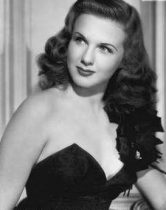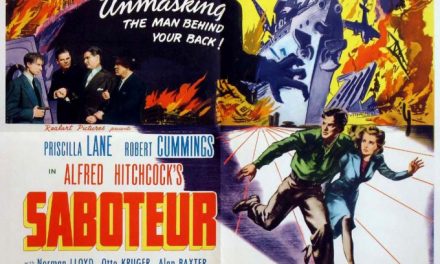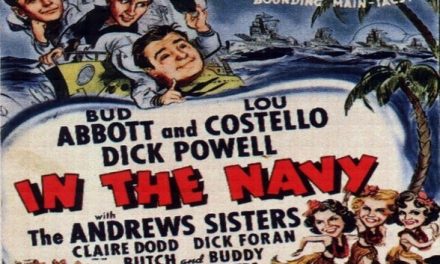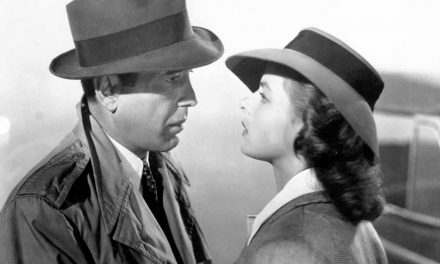Even though war can tear families apart and cause untold destruction, love and determination will always shine through the darkness.
The Amazing Mrs. Holliday, released in February of this year, stars Deanna Durbin as Ruth Kirke, a young schoolteacher and missionary. Her life takes a drastic turn after she successfully smuggles a group of South Chinese orphans onto a ship bound for San Francisco, believing it was headed to Calcutta. During the trip, the ship is torpedoed in the mid-Pacific.
The film opens after Kirke, sailor Timothy Blake (Barry Fitzgerald) and eight orphans have survived the attack and are on the shores of San Francisco. Once immigration officials tell them that the children will be held in federal custody unless someone posts $500 bond to free each child, Blake and Kirke seek the help of the Holliday family, since the wealthy Commodore Thomas Holliday was the owner of the sunken ship.
Only upon the family’s refusal to help does Kirke’s love for the children really begin to show. Blake tells the family that Kirke and the commodore were going to be married aboard the ship, but he is now believed to be lost at sea. Out of concern for the children, Kirke persists in the lie.
Though Kirke and Holliday were never actually going to be married on the ship, she had confessed to him about smuggling the children onboard and he promised to bring them safely to the U.S.
Soon after telling the family that she and Holliday were to be married, Kirke, Blake and the orphans move into the Holliday estate. During their stay, they meet Thomas Spencer Holliday III (Tom), the commodore’s grandson who is constantly trying to catch Kirke in the lie since he believes she is out to steal the family fortune.

Deanna Durbin stars as a young missionary and school teacher, determined to give orphans a better life in the U.S. From Wikimedia Commons-Yank, the Army Weekly
Despite presence of ideas such as destruction and deceit, the film is a comedy drama in which the jokes are worked in seamlessly. Both Kirke and Blake act as comedic relief at times and, though this could have easily deluded the jokes, the characters play off each other well.
One scene in particular finds Blake wondering if they will have a suit nice enough for him. He is immediately left wide-eyed and speechless at the sight of Kirke entering the room in a floor-length gown.
Given the film’s complex themes and characters, one may be surprised to learn this is the first directorial venture for Bruce Manning. Audience members can really gain an appreciation for his sense of character, one which he likely developed during his work as a screenwriter for more than 20 previous projects.
His knowledge of character and humanity shows in a scene in which Kirke and the Holliday family are seated at dinner. It is clear that the young missionary is unsure how to conduct herself among these high-society individuals and is mindful of their constant scrutiny. However, very little of this is given away in dialogue. In fact, there are only two or three lines of dialogue in the two-minute scene. Viewers can read the frustration and confusion on her face as she decides what silverware to use, repeatedly looking to the butler for approval or disapproval.
The tone for the aforementioned dinner scene is set by the music. This uncomfortable situation is made light and humorous by the score. In fact, at times it seems that the music plays so heavily into a scene that it is an off-screen character in this work.
The musical talents of Deanna Durbin are also on display at various points in the movie. While this could easily have become a crutch for the film or a time filler, this inclusion always seems to move the story along and reinforce its themes of love and determination.
At one point, she serenades the children to sleep with a lullaby. Cradling an infant orphan in her arm, she sings an old spiritual, “Mighty like a Rose,” in an angelic soprano befitting her white, sparkling, sequined dress in the scene.
Even the music in the background seems muted in comparison to her voice. The film is so tightly focused that it is easy to find the meaning in every cinematic choice. For example, the lyrics of the lullaby seem to be meant to teach the children that the bleakness of their situation does not mean they should despair.
At one point, Kirke sings the lines,
“Think I see angels lookin’ through the lace. When the dark (is) fallin’, when the shadows creep, then they (come) on tiptoe to kiss him in his sleep.”
One has a sense of Kirke’s pure nature in the scene, an idea that is explored not only through her message to the children, but also through costume choice and character motivation.
Other than the comedic elements of the dinner scene, during that time, the Holliday family is dressed in black, except for Kirke, who is wearing the same white dress. This only drives home the point that the family is blinded by cynicism in trying to protect their wealth to the point where they assume newcomers to be harboring some dark, greedy intention.
In fact, Kirke’s innate purity truly shows when she is driven to flee from the mansion at the thought of inheriting the commodore’s fortune. Tom catches her trying to escape and she reveals her secret, explaining that she merely wanted to protect the children. At that moment, it is as if his eyes are opened and he begins to fall in love with Kirke, agreeing to keep her secret.
With the film’s depiction of Kirke and her journey, it replicates the situation in which many modern women find themselves. She is forced to navigate new territory and adapt to her surroundings because the war changed the course of her life. Driven by her love for the children, she must rely on her sense of fortitude and resilience.
In an age where cinemas are premiering film after film about the life of a soldier on the battlefront, it is refreshing to see the war from a different, more indirect perspective.
The Amazing Mrs. Holliday could have been just another by-the-numbers movie that drove the much explored themes of love and devotion into the ground. However, it instead revitalizes these ideas by displaying them through music, sound and subtle humor.





